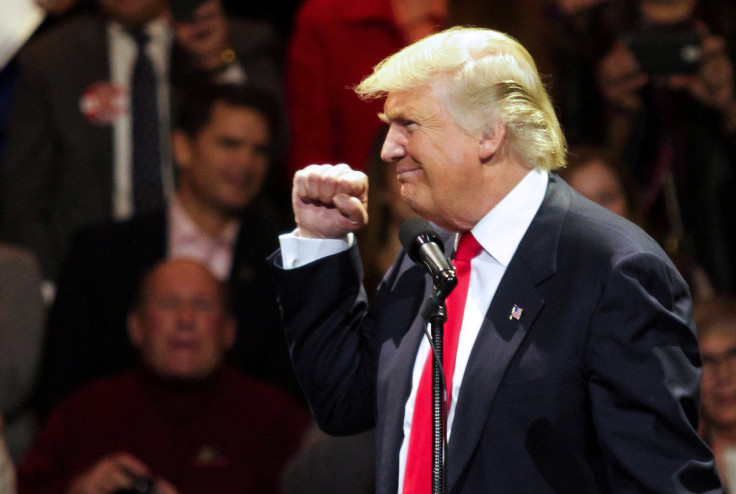What Is Fascism? Definition Of Flummadiddle, Donald Trump Insult, Amid Merriam Webster Word Of The Year Battle

After President-elect Donald Trump's election victory, fascism has become the fourth-most-searched word in the history of the Merriam-Webster dictionary’s website and it soon could be declared its word of the year. The unusual interest in the political term comes after many critics, from celebrities to activists, have labeled the next president a fascist for his sweeping statements against Muslims, Mexicans, immigrants and women.
Other words under consideration for word of the year include science, integrity, socialism, bailout, truthiness and the slang interjection “w00t,” in a nod to the nation's obsession with political issues this year and, apparently, expressing joy by using numbers as letters.
Some social media users have sought to organize a protest against the word of the year outcome and are searching for the definition of flummadiddle, meaning nonsense, to keep fascism from being declared the winner. To become the winner, Americans would need to look up the definition of flummadiddle twice a day for the rest of the year.
“'Fascism' is still our #1 lookup,” Merriam Webster tweeted Tuesday. “There's still time to look something else up.”
“Guys, 2016 is so bad it made the dictionary sad,” wrote one social media user in response.
So what exactly is fascism? Merriam-Webster defines it as: "1 A political philosophy, movement, or regime (as that of the Fascisti) that exalts nation and often race above the individual and that stands for a centralized autocratic government headed by a dictatorial leader, severe economic and social regimentation, and forcible suppression of opposition. 2 A tendency toward or actual exercise of strong autocratic or dictatorial control."
Fascism isn't new to the American political landscape. It was the No. 3 most looked-up word in 2015.
Trump has called women ugly and fat, vowed to deport undocumented immigrants and ban Muslims and called Mexicans rapists. But some historians have warned that linking Trump to fascism might be a dangerous distraction.
“The problem with fascism is that it’s a sort of ‘boo’ word,” Richard Bosworth, a professor of history at Oxford and award-winning biographer of Italian fascist dictator Benito Mussolini, told the Guardian. “If you tag somebody with it, then on the one hand you’re saying that person is going to murder six million Jews and invade Russia, and on the other hand you feel rather good about using the term and so you don’t engage in proper analysis.” The result, Bosworth said, is you don't “work out more clearly what Trump stands for, and what the contemporary United States stands for.”
© Copyright IBTimes 2024. All rights reserved.






















